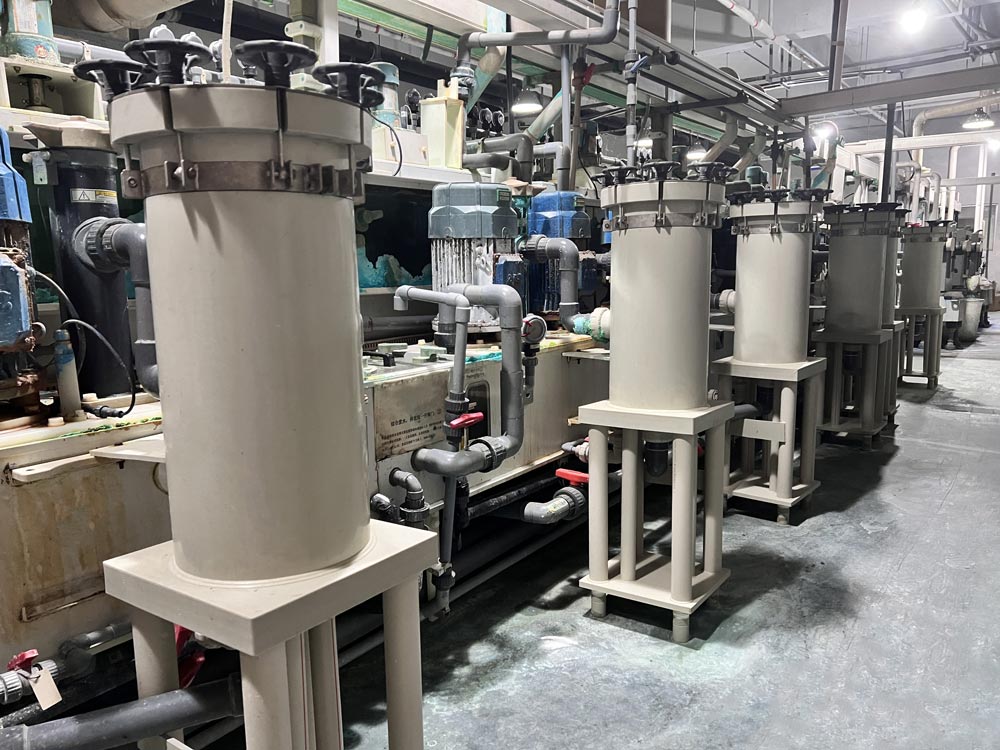# Electroplating Filter: Enhancing Efficiency and Purity in Metal Deposition Processes
Electroplating is a critical process in various industries, from automotive to electronics, where metal deposition is essential for enhancing durability, conductivity, and aesthetics. However, achieving high-quality electroplating results requires more than just the right chemicals and equipment. One often-overlooked yet vital component in this process is the electroplating filter. This article explores how electroplating filters enhance efficiency and purity in metal deposition processes.
## The Role of Electroplating Filters
Electroplating filters are designed to remove impurities and contaminants from the plating solution. These impurities can include particulate matter, organic compounds, and even microscopic debris. If left unchecked, these contaminants can lead to defects in the plated surface, such as pits, nodules, or uneven coatings. By filtering out these impurities, electroplating filters ensure a smoother, more uniform metal deposition.
### Types of Electroplating Filters
There are several types of electroplating filters available, each suited for different applications and levels of filtration:
– Cartridge Filters: These are disposable filters that are easy to replace and are ideal for removing larger particles.
– Bag Filters: These are cost-effective and suitable for applications requiring moderate filtration.
– Depth Filters: These filters are designed to trap particles throughout the entire filter media, making them effective for removing fine contaminants.
– Membrane Filters: These provide the highest level of filtration, capable of removing even the smallest particles and microorganisms.
## Benefits of Using Electroplating Filters
The use of electroplating filters offers numerous benefits, including:
– Improved Plating Quality: By removing contaminants, filters help achieve a more uniform and defect-free plated surface.
– Extended Bath Life: Cleaner plating solutions last longer, reducing the frequency of bath replacements and lowering costs.
– Enhanced Efficiency: Filters help maintain optimal plating conditions, leading to faster and more efficient deposition processes.
– Reduced Waste: By extending the life of the plating solution, filters contribute to more sustainable and environmentally friendly operations.
## Choosing the Right Electroplating Filter
Selecting the appropriate electroplating filter depends on several factors, including the type of contaminants present, the desired level of filtration, and the specific requirements of the plating process. It’s essential to consult with a filtration expert to determine the best filter for your application.
### Maintenance and Replacement
Regular maintenance and timely replacement of electroplating filters are crucial for ensuring consistent performance. Over time, filters can become clogged with contaminants, reducing their effectiveness. Monitoring the pressure drop across the filter and replacing it when necessary can help maintain optimal filtration efficiency.
## Conclusion
Electroplating filters play a pivotal role in enhancing the efficiency and purity of metal deposition processes. By removing impurities and maintaining clean plating solutions, these filters contribute to higher-quality finishes, extended bath life, and more sustainable operations. Investing in the right electroplating filter and adhering to proper maintenance practices can significantly improve the overall success of your electroplating endeavors.
Keyword: electroplating filter
